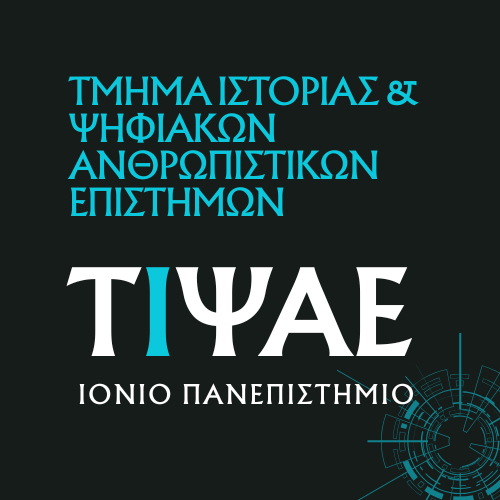EARLY MODERN EUROPEAN HISTORY (late 15th - late 18th c.)
Teaching Staff: Kokkomelis Nikos
Course Code: ΙΝΧ101
Course Type: Compulsory
Course Level: Undergraduate
Course Language: Greek
Delivery method: Lectures
Semester: 3rd
ECTS: 5
E Class Page: https://opencourses.ionio.gr/courses/DHI221/
Curricula: Curriculum in History up to 2024-25, Curriculum in History and Digital Humanities from 2025
The aim of the course is to familiarize students with the main political and cultural developments of the period. To this end, the syllabus will be divided into four thematic units: politics and power, religious life, economy and technology, and European expansion. The central themes of the lectures will be the evolution of the state and the birth of empires, the religious reform and Counter-Reformation, the emergence of capitalism and the political, economic and cultural consequences of colonialism. Special reference will be made to cultural life and the great intellectual movements that changed the continent's intellectual map.
By the end of the semester students will be able to analyse the main political and intellectual events of the period (from the emergence of "nation states" to e.g. the importance of Humanism, the Renaissance and the Enlightenment). They will understand the significance of the Religious Reformation on the contemporary European map and its political, social and economic implications. They will become familiar with the dynamic changes brought about by overseas travel and the Industrial Revolution and understand how contact with non-European peoples transformed conceptions of identity and culture.
Lecture 1: Europe in the world of 1450
Lecture 2: Politics and power: 1450-1600
Lecture 3: Europe in the world: 1450-1600
Lecture 4: Economy and technology: 1450-1600
Lecture 5: The religious reform: 1450-1600
Lecture 6: Cultural and intellectual life: 1450-1600
Lecture 7: The individual in society: 1450-1600
Lecture 8: Politics and power: 1600-1789
Lecture 9: Europe in the world: 1600-1789
Lecture 10: Economy and technology: 1600-1789
Lecture 11: Religious renewal: 1600-1789
Lecture 12: Cultural and intellectual life: 1600-1789
Lecture 13: The individual in society: 1600-1789
- Bernstein Serge – Milza Pierre, Ιστορία της Ευρώπης (πρώτος τόμος). Από τη Ρωμαϊκή Αυτοκρατορία στα ευρωπαϊκά κράτη (5ος – 18ος αιώνας), μτφ. Αναστάσιος Δημητρακόπουλος, Αλεξάνδρεια, Αθήνα 1997.
- Burns Edward M., Ευρωπαϊκή Ιστορία. Ο Δυτικός πολιτισμός: Νεότεροι Χρόνοι, μτφ. Τάσος Δερβέρης, Επίκεντρο, Θεσσαλονίκη 2006.
- Wiesner – Hanks Merry E., Πρώιμη Νεότερη Ευρώπη. 1450-1789, μτφ. Ελένη Καλογιάννη, Ξιφαράς, Αθήνα 2008.
3 hour lectures course
Commenting on written and audiovisual sources
Written exam
Back



